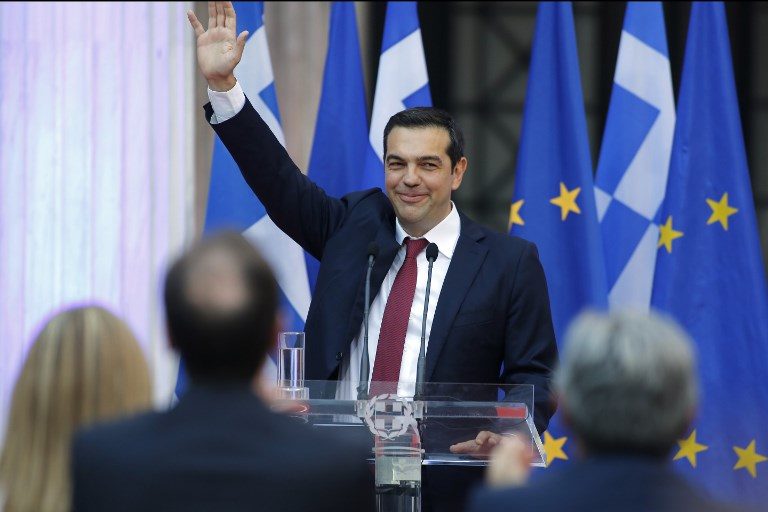SUMMARY
This is AI generated summarization, which may have errors. For context, always refer to the full article.

ATHENS, Greece – As Greece enters an election year, the two main political parties are deeply polarized setting the stage for a no-holds-barred campaign.
With the ballot scheduled for October but expected as early as March, hostility between the ruling leftist Syriza party and the frontrunning New Democracy conservatives has hit fever pitch.
“We know they plan to hold dirty elections,” New Democracy head Kyriakos Mitsotakis said of his Syriza rivals in a recent speech, dismissing government accusations of kickbacks allegedly pocketed by his party while in power prior to 2015 as “savage propaganda.”
Both sides accuse each other of marshalling web trolls to spread misinformation. New Democracy says the leftists have liberally dished out well-paid state jobs to a legion of ill-qualified friends and allies.
In turn, the government of Prime Minister Alexis Tsipras points to ongoing investigations targeting years of alleged kickbacks to conservative ex-ministers from Swiss pharma multinational Novartis and German engineering giant Siemens.
State vs Skai
The government has identified prominent media group Skai as a key source of what it sees as unfair criticism of its policies. In addition to frequently attacking the station’s broadcasts, Tsipras’ party is boycotting its talk shows.
Relations hit rock-bottom last month when a bomb exploded outside Skai’s Athens headquarters, prompting media group owner Yiannis Alafouzos to say Tsipras’ government was “morally” responsible for the attack.
“There is a climate that not only tolerates but often encourages extreme forms of expression in the public space,” Nikos Konstandaras, a veteran columnist for liberal daily Kathimerini that is part of the Skai group, wrote after the bombing.
“Today, the political polarization that breeds such violence is intensifying,” he added.
Brought to power on an anti-austerity ticket in 2015 after decades on the sidelines, Tsipras’ government faced an overwhelmingly hostile media.
His response was to completely overhaul the powerful TV sector and force channel owners, who had played kingmaker between New Democracy and the Pasok socialists for over two decades, to pay millions of euros for new operating licenses.
“In Greece, the dependence of mainstream media on the state is the most extreme in Europe, it is only comparable to Turkey,” George Pleios, head of media studies at the National University of Athens, wrote in a recent article.
Fates entwined
With media under the control of businessmen mainly active in construction and shipping, ownership has long been a means of securing state contracts and favorable bank loans, adds Nikos Smyrnaios, a digital media professor at Toulouse university.
“In this way, when the (economic) crisis struck, state (bankruptcy) brought about a similar fate for the media,” he notes.
Alongside the conservative and socialist parties who had ruled the country prior to the crisis, mainstream media were also discredited, argues Stelios Papathanassopoulos, professor of media organization and policy at the University of Athens.
The anti-austerity demonstrations that helped propel Syriza to power also assisted the rise of social media and Twitter in Greece, mainly to the benefit of the left.
“The young, who at the time formed the bulk of Syriza voters, challenged the accuracy of (mainstream) media and turned to alternative networks,” Papathanassopoulos told AFP.
After two years of bitter rivalry between Tsipras and those he labelled “oligarchs,” 3 major media groups changed hands to avoid bankruptcy, and Greece’s most powerful TV station before the crisis, Mega, went bust.
But the overhaul did little to promote smaller, more independent voices, notes Smyrnaios.
“Media groups are still in the hands of influential businessmen,” he said.
In another sign of the sector’s deep troubles, one of Greece’s two media distribution agencies filed for bankruptcy in 2017.
The one that remains is controlled by a leading media group.
“As in many Latin American countries, Greek media have overstepped ethical boundaries,” argues Smyrnaios. “It’s more about emotion, reviving old hatred between the right-wing and the left that goes back to the (1946-1949) civil war.” – Rappler.com
Add a comment
How does this make you feel?
There are no comments yet. Add your comment to start the conversation.